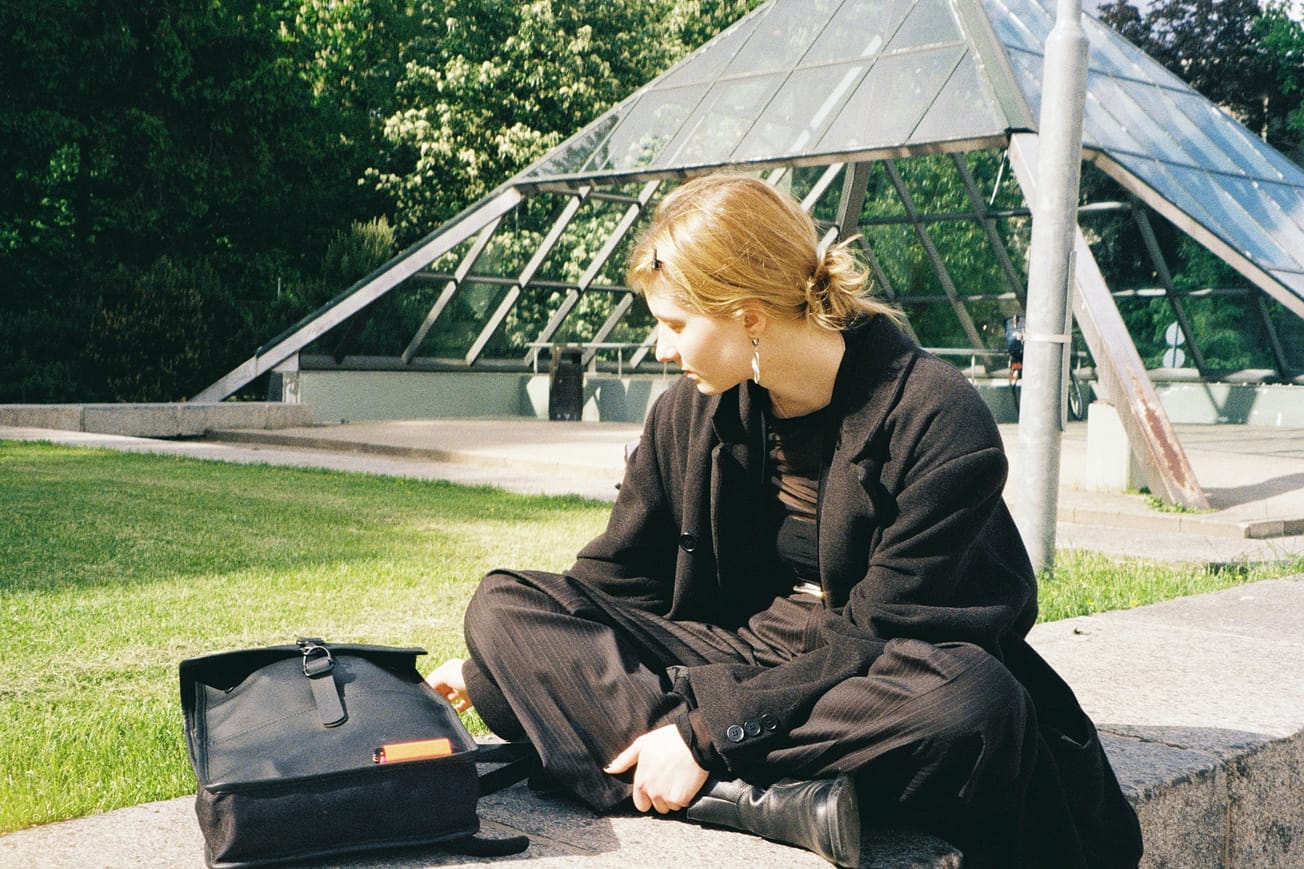Leah Martindale, Third Year Film & TV
Leah Martindale talks about her life with OCD and how finally getting a diagnosis made such a difference.
The world has a very rigid idea of what OCD means. To have OCD, is to be tidy, organised and clean to a fault. 'I'm so OCD' is synonymous with liking your stationery in neat lines on your desk and Marie Kondo-ing your wardrobe. Exaggerated characters like The Big Bang Theory's Dr. Sheldon Cooper come to mind and uncomfortable clarity when the idea of obsessive compulsions come to mind.
To my friends, my OCD diagnosis came as a hilarious and frankly ridiculous surprise. My bedroom is a tip, a festering hole where organisation, order and clean laundry come to die - to the disgust of my mother, friends, flatmates and landlord. I am freakishly disorganised, frequently putting out instagram story pleas for a reminder as to who it is I have plans with the following day.
To others, it was a natural development. A string of seemingly nonsensical phobias and dislikes, from walking downstairs without a handrail to sharing a bathroom while someone is brushing their teeth. These have made me the slightly weird friend ever since I started exhibiting them. A physical twitch, unchanged by physical interference but aggravated in terms of anxiety and a tendency to bite, pick and tear away at my fingers visually highlight the confused state of my mind.
The Mental Health Charity, Mind, defines OCD as an anxiety disorder comprising of two main parts:
- Obsessions - unwelcome thoughts, images, urges, worries or doubts that repeatedly appear in your mind
- Compulsions - repetitive activities that you do to reduce the anxiety caused by the obsession
It's not about being tidy, it's about having no control over your negative thoughts. It is about being afraid not doing things a certain way will cause harm.
Diagnosis
This disorder is a tricky one to diagnose, especially if the sufferer, like myself, is extremely high functioning. Childhood compulsions, like touching each finger with equal force on equal textures are easily disguisable in adult life. An obsessive fear of dirt is easily remedied by letting untidiness gather, therefore avoiding the possibility of revealing the ever terrifying mystical mess. An obsessive twitch is easily played off as an eyelash in the eye, or a sneeze that just won't come out.
OCD is difficult to distinguish from general anxiety disorder, as so many of the symtpoms can be internalised to past the point of recognition. A compulsion, the knee-jerk reaction to an unwelcome obsession, can be as internalized as checking you do not agree with the unwelcome thought you just had. When the doctor asks you about your anxiety, it can feel unecessary to mention that after each intrusive thought, you check back that it wasn't something you subconsciously meant. This is how my diagnosis took nearly a decade of exhibiting obsessive behaviours, anxieties and intrusive thoughts to reach fruition.
Intrusive thought is defined by Moodsmith as ‘unwanted thoughts or images that you find distressing and/or disturbing.'
While nearly every result under a google search of ‘intrusive thought’ is pulled from pages on OCD, the phenomenon is symptomatic of a whole host of mental illnesses. My doctor described it in the simplest and least scary way I’ve heard by explaining that the brain rattles through thousands of potential results for every thought you have, much like Google. Sometimes, a bizarre answer may crop up. If you are in a train station, your brain might pull the search results ‘push that stranger on the tracks’. This is just your brain trialling things you may want to think, in the little board meeting behind your eyes. The mind of someone mentally well would disregard this thought, or notice it in passing and laugh it off. The mind of someone with intrusive thought opens this search result, and feels immense guilt and fear that their search engine might ever come across such a bizarre and unwanted image or thought.
This is just your brain trialling things you may want to think, in the little board meeting behind your eyes.
I denied for a long time ever having intrusive thought. It is so often discussed as the brain telling you to commit acts of violence, or self-destruction, that it felt terrifying to consider. My few remaining brain cells leftover after coursework telling me that if my nails were too long they might perforate my eyes in my sleep was weird, sure, but hardly ‘intrusive’. My brain responding to the smell of toothpaste with the fight or flight response that the dentist was going to come and break all my teeth in half was bizarre, okay, but hardly ‘intrusive’. Intrusive thoughts were for dangerous, crazy people, wasn’t it? I wasn’t one of them, was I?
My OCD diagnosis came part and parcel with the inevitable acknowledgement that the fears ticking around my little noggin were not normal. That an itchy eye once should not have catalysed two years of compulsive eye twitching. That one bad dentist experience as a child should not have left me so terrified of the entire institution that at age 21 every check-up I go to I have to a chaperone to hold my hand.
My diagnosis came with the revolution that having to clean your fork every time it goes from your mouth into your food isn’t normal. That most people can share wet food, like ice cream, without a crippling fear of the unknown but very bad. That most people are not Mother Teresa-like around blood, vomit, needles, and injury, but inconsolable when saliva is even brought up in conversation.
My diagnosis was sad mainly in the realisation that I had been suffering without even knowing it. That every tic, double-checking, compulsive tapping of my fingers against my side and eating evenly across my mouth to ‘make it even’ was a waste of energy not universal amongst the world. But my diagnosis was happy, too. It is nice, in a bittersweet way, to know the entire world does not stress like I do. To know my friends do not sweat over the small stuff, and to know that one day, hopefully, I won’t too.
Featured Image: Unsplash / Aaron Burden
How have you dealt with your diagnosis of OCD? Let us know in the comments or get in touch!









